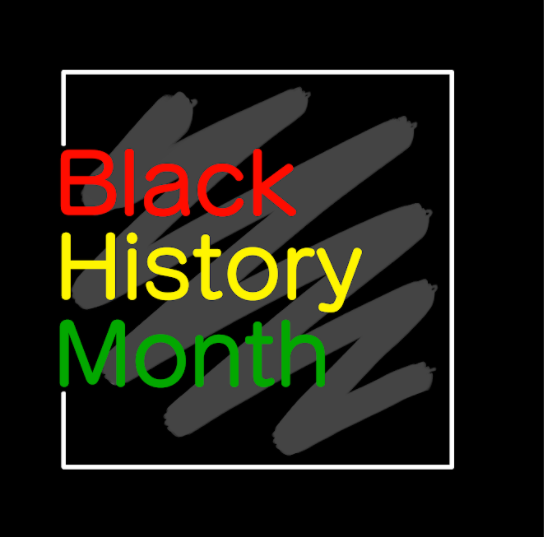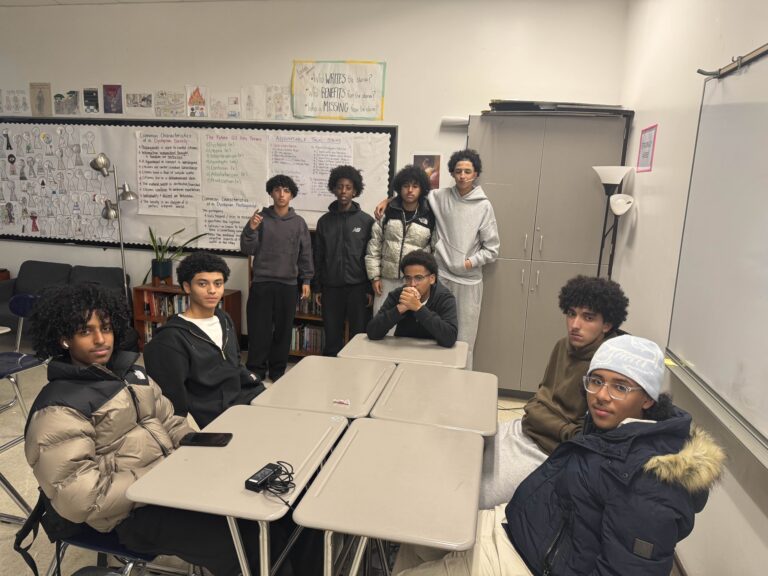
Graphic by Carolina Cuevas.
Rose Jean Charles also contributed to the article.
Black History Month first originated in the U.S. in 1926 when a man named Carter G. Woodson launched the first celebration to honor the Black community. The month of February was chosen to coincide with the birthdays of Abraham Lincoln (the 16th president of the U.S.), and Frederick Douglass, (a runaway slave who became a leader in the abolitionist movement.) The two both sought to end the practice of slavery before and during the Civil War.
At first, when black history had just begun to be incorporated into education, it was only available at schools that the government had made for former slaves in the late 1860s. It was not until 1903 that white education systems allowed white students to learn about black history through a white lens. For the most part, educators taught about the same few black historical figures and would tip-toe around the topic because it made white students uncomfortable. However, things are starting to change and black stories will no longer be told solely through the perspective of white people.

Malden High School has been celebrating Black History Month for many years in order to help students deepen their knowledge on all sorts of topics such as black culture, history, and the countless contributions black people have made to American society.
Kristy Magras, the advisor of the Black Culture Club, stated, “Black history is American history” and should be talked about all year round. Due to the pandemic, the club had trouble getting together and going through with the activities they had planned for this year but is looking forward to “re-engage” the Black Culture Club activities in the spring “that will highlight the black culture, history, and traditions.”
By doing activities and events at Malden High, Magras hoped to bring awareness and to show the richness of the culture because “there is more to it than slavery, civil rights, and the [Black Lives Matter] movement.”
Katherine Haskell, a chemistry teacher at Malden High School, enjoys celebrating Black History Month. Haskell stated that “we [should not] just talk about black tragedy, we need to talk about black triumph as well.” Haskell remarked, “this year’s Black History Month held a lot of gravitas because of everything that has happened since last February.” She added, “[this is] good because people have been talking about this all year rather than just confining it to the month of February.” Although Black history month looked different this year due to the pandemic, Haskell did not let it stop her from celebrating. She decorated her Google Classroom banner and put together presentations about black scientists with her students.

Amine Yakine, a history teacher at Malden High School, thinks that learning about Black history will allow America to grow as a nation. Yakine said, “[He does] not simply teach the transatlantic slave trade, [he also focuses] on black voices, historians, black women as leaders as part of the curriculum. ” He added that “[it is] very important to acknowledge black resistance, how they fought and how they struggled, not only to confirm their humanity but also, in the process, enrich the American experience.”
Yakine noted, “America would not be a democracy today if it were not for the Black resilience and refusal to accept dehumanization, apartheid, enslavement, Jim Crow, and white supremacy. Their fight for justice and equality is what made, and still makes America, a better nation, a democratic nation, a just nation.”
For further reading on the history behind Black History Month, click here.




